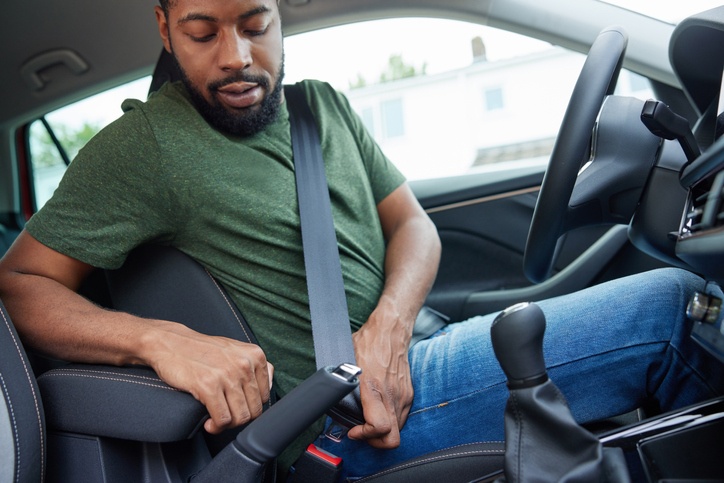
Most drivers don’t think twice before buckling up, but there was great resistance to the idea of compulsory seat belt wearing when the law changed on this day 40 years ago.
Volvo was the first manufacturer to fit three-point safety belts as standard equipment in its cars from 1963 and yet it was another 20 years before it became mandatory for drivers to wear them here in the UK.
Although many drivers complained about feeling restricted by the belt, and feared being trapped in the event of a crash, wearing rates for vehicle occupants are now estimated as 94.8% for drivers, 94.6% for front seat passengers and 91.5% for rear seat passengers.
However, enforcement remains a challenge. After all, the five per cent who refuse to wear a seat belt equates to around two million drivers. 200 people each year die in a crash while not wearing a seat belt with up to half of them expected to have survived had they worn one.
In the 60 years since three-point safety belts have been fitted to cars, the lives of one million motorists have been saved. In Europe alone, the safety belt is estimated to reduce road fatalities by 40 per cent every year.

In-car safety measures such as airbags, anti-lock brakes and even seat belts may have improved safety for car drivers, but they have also allowed motorists to subtly abdicate their duty of care to road users more vulnerable than themselves
West Midlands traffic officer Mark Hodson, who helped introduce close-pass policing, took to Twitter to explain the challenges surrounding seat belt law enforcement: …it’s hugely staff intensive, each offender needs stopping & speaking to so let’s look at how we can make it easier to enforce in a way that changes offending behaviour, saving lives, money & resources that then can be directed towards combating other sources of road harm.
Hodson proposes a total withdrawal of the current raft of exemptions apart from vehicles over 3.5t making frequent pickups (no more than 50 metres apart), the introduction of an endorsable offence for the driver (no matter who in the vehicle isn’t wearing a seat belt) and a further offence for any seat belts not in good working order.
The BBC footage below illustrates how a good proportion of drivers used to be resistant to the idea of seat belts, yet around 95% now comply with the law.
"The thought of it horrifies me" 😳
It's 40 years since you had to wear seatbelts in the front of cars 🚗These drivers in #Bristol weren't so keen on the idea… pic.twitter.com/ZW7Dp4XjJc
— BBC Radio Bristol (@BBCRB) January 31, 2023
Ethical breakdown cover for drivers who care
The ETA was established in 1990 as a breakdown provider for drivers concerned about road danger and the environmental damage caused by motorised traffic. It’s the reason we not only deliver excellent service at a great price, but promote sustainable transport and campaign for safer roads. Get a quote today and together we can do more.
We offer cycle insurance , breakdown cover and mobility scooter insurance while putting concern for the environment at the heart of all we do.
The Good Shopping Guide judges us to be the UK’s most ethical provider.

0 Comments View now